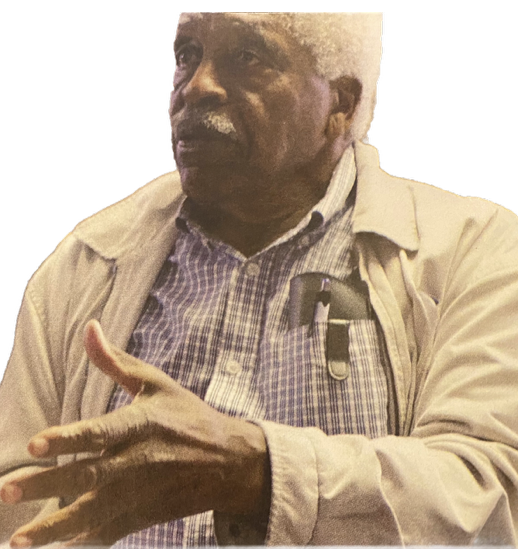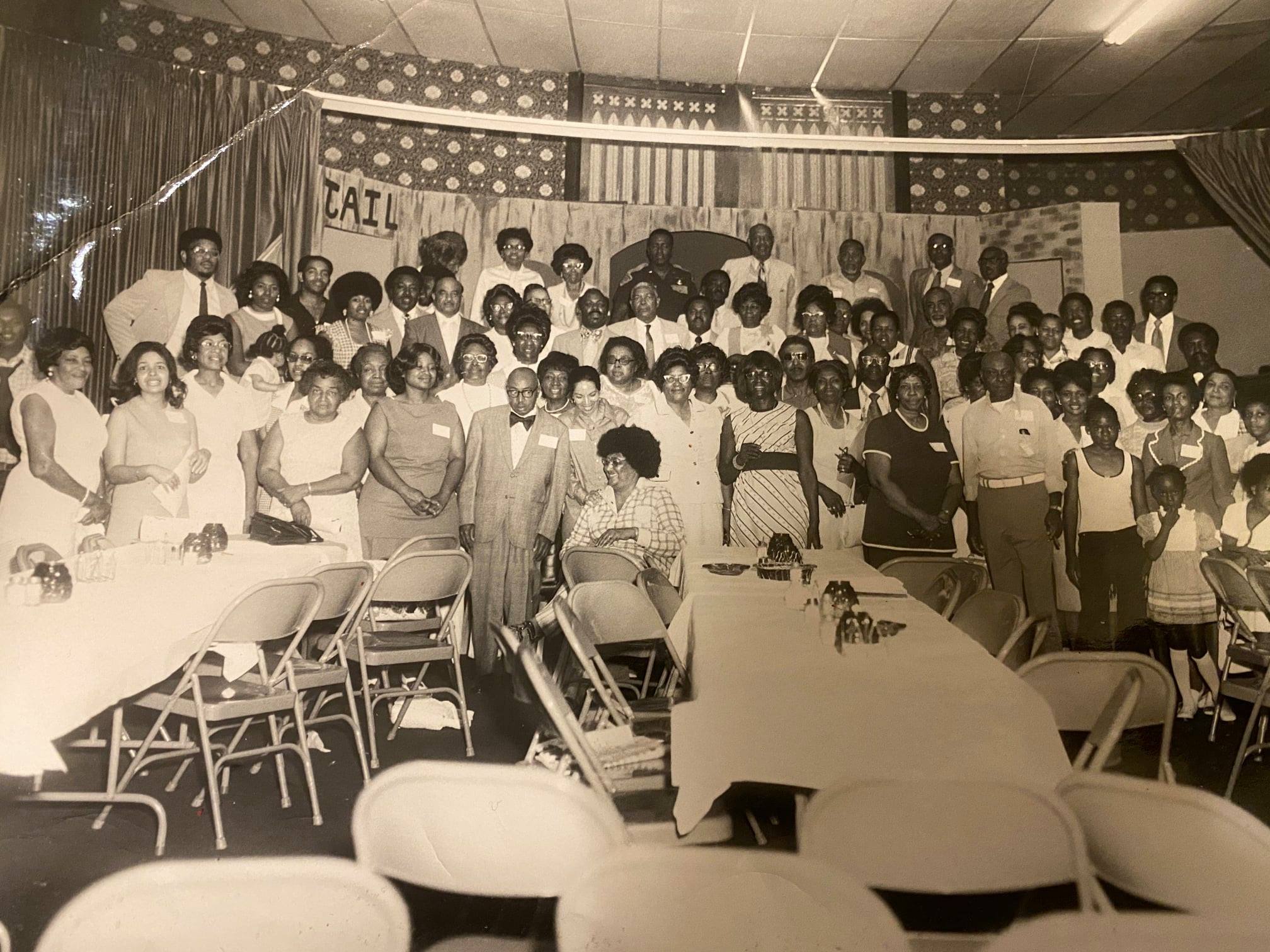Excerpts from an article in the Claremore Daily Progress article written by Larry Larkin and published March 22, 2009.
IT WAS A DIFFERENT TIME, IT WAS A FAMILIAR PLACE
As far as I know, Gerome Riley never has authored a book. He certainly knows how to tell a story, however. This was proved once again last week when the lifelong Rogers County resident was the guest speaker for the Friends of the Library.
Born and reared on a small piece of land south of Chelsea, Riley shared his memories with his audience for more than 45 minutes. Only his self-imposed time limit prevented him from speaking longer. “I will not say I lived in bad times, but I can certainly say they were hard times,” he said.
My first meeting with Riley came last year when he helped me gather information about the Claremore Clowns, a semipro baseball team. For years, the team had all black players. Later, a few white players joined the squad.
His parents were Sylvester and Georgia Riley of the Chelsea area. They raised three sons and a daughter. The father shined shoes at the barber shop for a nickel a pair and he cleaned at the bank for $15 a month.
“If you were uneducated and black, you took only the few jobs you could get,”Gerome Riley said. “We never had any money, but my family never went hungry. Our parents made sure of that.”
The Rileys lived in a four-room house. “We had two bedrooms, a living room and a kitchen,” Riley said. “There was no electricity, no running water, and the only heat came from two tin stoves. Many a morning we would get up and break ice in the buckets of water we had carried into the house the night before.
Like most farm people, white and black, families raised most of the food. “We always had a hog, and my brothers and sister and I always helped pick blackberries. My mother sure knew how to fix jellies and jams and the sweetest-tasting sorghum and molasses. “Now we didn’t know about spreading butter on our biscuits, but we sure knew how to sop those biscuits in the molasses.” Riley received a round of laughter when he suggested that most of those in the audience probably did not know what “sopping” involved. Pointing out again that he and his brothers and sister never went to bed hungry, he said that they had no refrigerator to raid before going to bed. “I was always ready for breakfast the next morning,” he said, laughing.
Part of his boyhood was spent helping feed the family from fishing and hunting. Like any toys we may have had, nothing came from the store,” he said. “Our fishing poles were tree limbs and we used a safety pin for a hook. We never hunted with guns. Didn’t have any. That was done with a stick. The best time was right after it snowed. Rabbits didn’t like running in snow, and we could track them down.”

Because of the color of his skin, Riley could not attend school in Chelsea. He attended a rural one-room schoolhouse from the first grade to the eighth grade. As he grew up, Riley discovered he was a good athlete. The problem was that he and the other black youngsters were not allowed to play organized sports with the white kids. “For years at Chelsea, Rupert Cross was the high school football and baseball coach,” Riley said. “And even though he wasn’t supposed to do so, a lot of times he let us play late in the games.”
Former Chelsea resident Ralph Terry, 1962 World Series Most Valuable Player while with the New York Yankees, was guest speaker two years ago at Claremore’s annual baseball dinner. During his talk, Terry said Riley was the best catcher he ever saw before entering the Major Leagues. As a freshman, Riley had the choice of attending school in Claremore, Vinita or Nowata. Each had all-black high schools. Good at basketball also, Riley enrolled at Claremore’s Lincoln School.
Riding a regular passenger bus between Chelsea and Claremore (50 cents round trip) to attend class, and later attending one of the three Claremore movie theaters, Riley took it for granted that blacks took seats in the back. “I was never bitter about it while growing up, it was just matter of life,” he said. “If a white person needed our seat, we were supposed to give it to them. “One day, a white man got on the bus and all the seats were full as he walked back toward us. I started to get up, and he told me to sit back down. He said I needed a seat, also. After all these years, I still remember that happening.”
Following his graduation from Lincoln, and being a member of Claremore’s only boys basketball state championship team (1952), and serving time in the Army, Riley worked 37 years for the Phillips oil Company. Starting out as a porter at the Will Rogers Turnpike station at the Claremore gate, he worked his way up. He was the station’s final manager. He retired in 1995.
“My life has been quite an experience. I tell my children and they can’t believe some of the things we went through,” Riley said. “I feel I have lived a good life and I have always treated people right. That maybe the reason I have been able to live an enjoyable life.”
Since his retirement, Riley stays busy. A student of black history, and himself a living part of that history, Riley enjoys passing on his knowledge to today’s young people.
Gerome has been instrumental in helping the MoH pull together information, and he has a wealth of historical knowledge. The attached picture is one he shared with us from a Lincoln School reunion in 1982. We appreciate Gerome for his dedication in preserving such an important part




